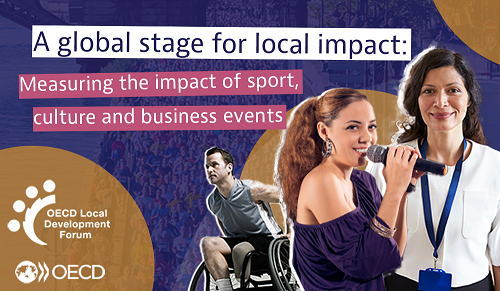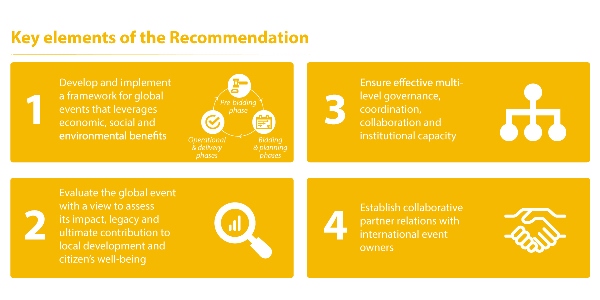Local Employment and Economic Development (LEED Programme)
The OECD Recommendation on Global Events and Local Development
New! Two OECD Guides on measuring the impact of global events on local development: |
|
|
The hosting of global events such as the Olympics, Expos, World Cups and Cultural Festivals have long been seen as opportunities to stimulate growth and development. Hosts increasingly seek to ensure that such events act as catalysts for local development, are used to leverage long-term infrastructure investments, boost tourism and trade, create jobs and promote community development. To deliver on these promises, events must be deliberately designed and executed to generate long-term benefits. They need to clearly demonstrate how they impact upon communities to contribute to economic growth and development. Tax incentives, investment and sponsorship deals must be well thought out and managed to ensure that each event benefits host cities and the awarding body. The Recommendation on Global Events and Local Development (italian version) was adopted by the Council meeting at Ministerial level on 30 May 2018. It offers a comprehensive overview of the conditions required to realise more sustainable global events and to build stronger capacities to leverage local benefits.
For more info download our flyer Global sporting events and local development: boosting social impact in Sport et Citoyenneté n°50 |
|
|
|
|
|
|
|
The OECD defines global events as events of a limited duration that have a global reach, require significant public investment and have an impact on the population and built environment. The definition covers as many global events as possible, noting that Adherents will determine the applicability of the Recommendation, in whole or in part, to a specific event. While natural candidates are Olympic Games, World Expos etc., the Recommendation may be applied to a broader range of events such as summits, recurrent events (as appropriate) or those that do not require bidding. |
|
More Information
|
|
Related Documents

